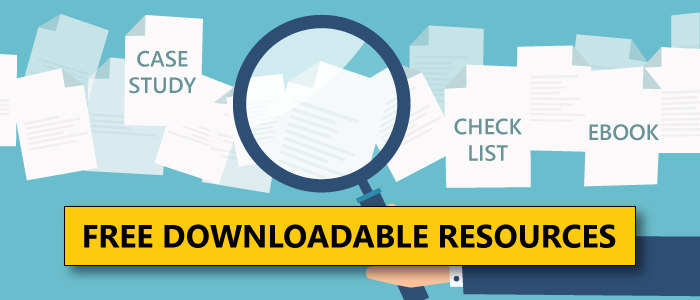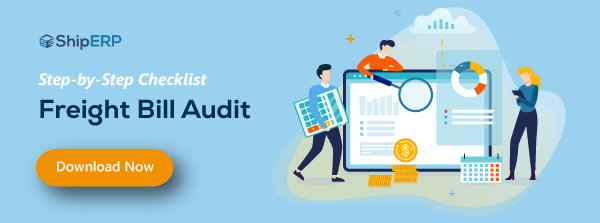
How Freight Audit Automation Can Skyrocket Your Cost Savings
For any company that ships parcels or freight, controlling costs is a significant pain point. The focus today is on cost efficiency using freight audit automation. Without adequate controls in place, profit margins are compromised, and the customer’s demand for faster, more reliable deliveries cannot be met.
Freight audits reveal a lot about your shipping costs and practices, potentially uncovering a lot of disparities between what was billed and what was quoted. With freight volumes on the rise, it is becoming ever more crucial to understand precisely where these costs are coming from. Armed with this data, it is possible for companies to optimize processes and reduce costs, to gain efficiency, to improve margins, and make customers happy all at the same time.
The High Cost of Manual Processes
The rising cost of shipping is a widespread concern, not just among shippers, but with manufacturers and distributors as well. The disparity between the initial quote and what is invoiced is often markedly different, and the cost of transportation itself is on the rise as fuel costs continue to fluctuate.
Regulatory changes and compliance add to the complexity, and when quotes are processed manually, it creates an atmosphere rife with error and overcharging. Freight audits are essential to ensure you are not overpaying; but these are costly, both in terms of the human resources required and the salaries needed to support it, as well as the high price of errors that are likely to occur.
Exploring Your Freight Audit Options
As a company who ships parcels or freight, you have likely explored several options to address your audit needs, weighing the pros and cons of freight audit software against other possibilities in the effort to stay profitable and satisfy all stakeholders.
Along this journey, you may have considered any or all of the following solutions:
Manual Audits
With the complexities of global freight on the increase, manual processes are simply not acceptable. Auditing every freight invoice takes valuable resources away from areas where they could be adding value. It costs a great deal of money, and the entire process is troubled with the potential for errors and cost inefficiencies.
Freight Audit Software Solutions
Investing in freight audit software is another solution, although some versions of this don’t play well with other ERP and TMS technology, requiring a large amount of human oversight to ensure everything is on track and, again, adding complexity and cost to the process. The issue here is to find freight audit software that streamlines processes instead of creating new problems.
Learn how companies like A. O. Smith and MCR Safety use the solution AuditERP to automate their freight bill auditing.
Outsourcing
Some companies have turned to outsourcing freight audits, handing over their freight bill needs to a third-party that is dedicated to the task. However, this can be complicated, as audit companies are subject to the same challenges as everyone else. Though outsourcing audit companies specialize in this area and are, hypothetically at least, experts in the field, some operate on a less than scrupulous basis and can be charging you for services even when discrepancies are not identified. A reputable company would only charge you when they did find an error and were able to resolve it.
Outsourcing to such an organization may seem like an easy solution, and there may well be a great deal of value in what they deliver—convenience and data being the main points—but in the effort to reduce costs even further, there is a better solution.
Software Plus Manual Invoicing
The cost of manual freight invoice processing is estimated to be in the range of $15 - $50 per invoice. Document handling constitutes the bulk of that cost, and when an error is detected, that cost can increase dramatically.
Any repetitive process that depends on human input creates a potential for error. Add to this the mounting complexity of quoting multiple carriers, modes of transport, processing various tariffs and conditions, it becomes a monumentally costly task, simply to produce an accurate result.
Freight Audit Automation Prevents Human Errors
Statistically, 15 percent of all carrier invoices are incorrect, and roughly 80 percent of logistics companies overpay for freight services. This creates a valid argument for freight audit, but the process is complicated, tedious, and comes complete with a high potential for error.
Automation offers a viable solution to this problem.
Automation has been instrumental in improving business processes, optimizing workflows, and delivering cost savings across a wide range of industries from finance to logistics and beyond.
Leveraging automated processes, human error is all but eliminated while timeliness and precision are guaranteed. This reduces the time employees spend tracking errors and fixing problems and allows them to focus on higher-value tasks like business-building activities or improving operations elsewhere in the organization.
Freight Audit Automation Improves Financials
In a manual workflow, the act of overpaying a freight invoice is common. Without the appropriate checks in place, approvals and remittances are often given sight unseen because the process of diving deeper into potential discrepancies is both time-consuming and mathematically complex.
Freight audits can potentially save your company a great deal of money, but if they cost more than the return is worth, it may not seem like a viable solution. Automation eliminates many of the operational costs of freight audits, helping to maintain profits while adding value to your business processes.
When connected to the TMS and ERP, freight audit automation helps companies track specific expenses better, helping to flag systems that need improvement.
Freight Audit Automation Improves Efficiency
The freight invoice audit process connects to the TMS and validates each invoice against the quoted rate, creating exceptions that are then delivered to the ERP for timely processing. Errors are identified and flagged for deeper scrutiny. This means that employees are only spending time looking at invoices that are in error, and not the 85 percent that is correct, supporting a more streamlined workflow while ensuring greater accuracy and efficiency.
Freight Audit Automation Improves Communication, Both Internally and Externally
The automated system provides centralized information that can be accessed by all departments, improving internal communication, and facilitating conversations that need to be had about which line items are included according to previously agreed upon terms. This removes internal informational silos and ensures that all departments are looking at the same data simultaneously.
Externally, communication is improved because stakeholders can access accurate data in real-time, affording them the ability to deal with problems as they arise, rather than waiting weeks or more for them to surface. When addressed in a timely manner, errors unearthed by an audit can be resolved quickly, as opposed to having to research and rehash situations that have since cooled.
Shipping Carriers May Overcharge. Follow the Best Practices of Freight Auditing.
Most shippers will agree that freight carriers sometimes overcharge. This is a situation that has cost millions, and even billions of dollars over the years, and yet many companies will continue to pay, simply because they do not have the bandwidth to deal with the audit process.
To keep costs down, improve efficiency, and support data-driven decisions, automating the freight audit process is the clear solution. AuditERP is designed to alleviate your freight bill inconsistencies, especially for SAP environments. It integrates seamlessly with your SAP ERP and ShipERP shipping software, communicating directly with carriers, whether or not they operate on the SAP platform.
AuditERP is just one of the many ways in which ShipERP supports your freight operations. Learn how you can automate your freight auditing by connecting with an ShipERP team member today.


